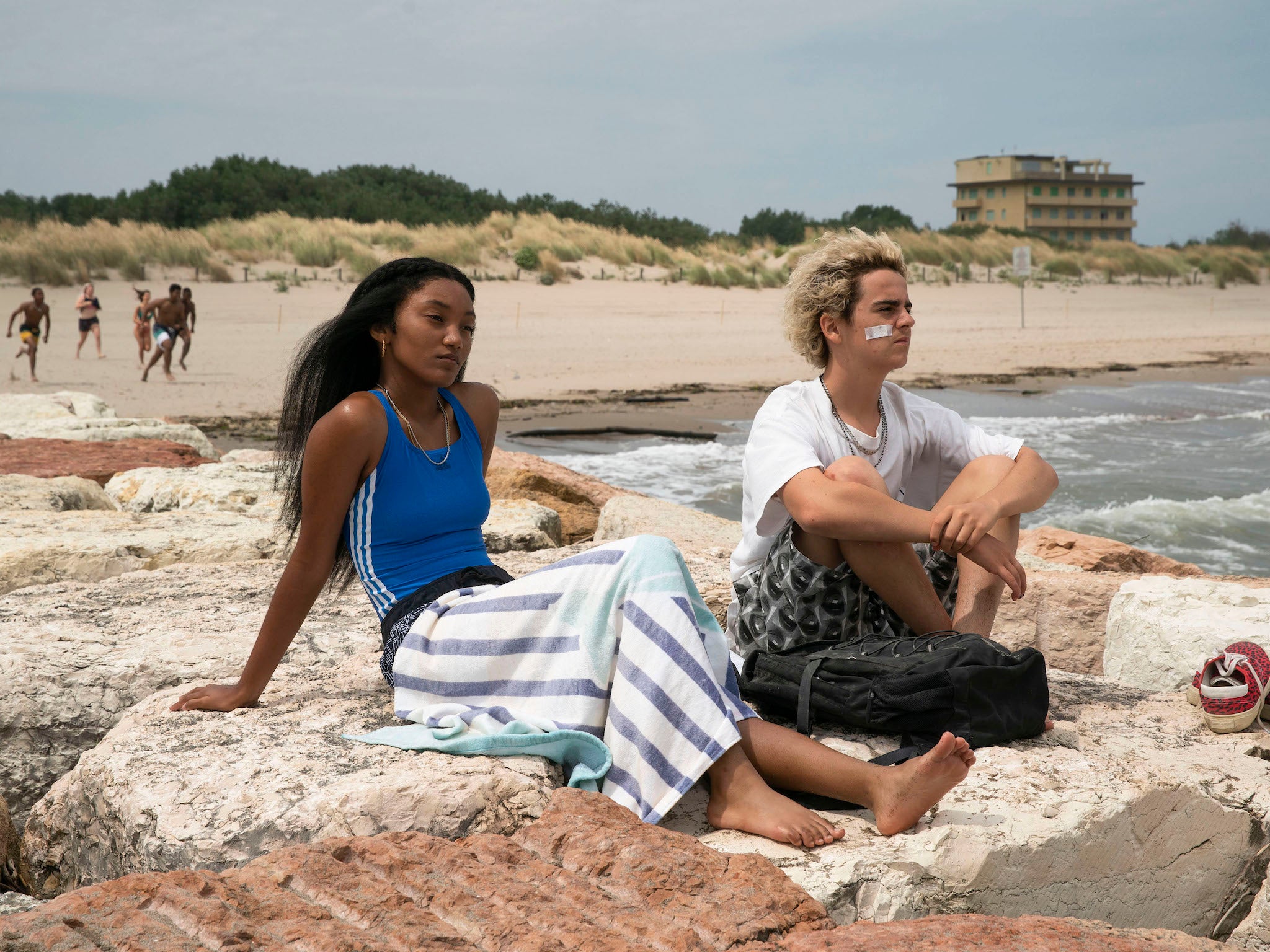Rampant hormones and self-discovery: Why teen dramas will always be relevant no matter your age
Between Dawson's Creek and Ladybird, some of culture's most defining on-screen moments are grounded in the coming-of-age. Fiona Sturges looks to HBO's We Are Who We Are for proof that teen dramas are all grown up


In We Are Who We Are, an eight-part series set on an American military base in Chioggia, Italy, a disgruntled adolescent asks an older friend: “Do you ever feel like you don’t fit in anywhere?” It’s a classic teen-drama line, the kind of which, in years gone by, would be followed by a heartfelt soliloquy about being yourself. But instead the friend pulls a face and says, “Eh? I’m a soldier, bro.”
Luca Guadagnino’s languid and immensely atmospheric series focuses on teenagers Fraser and Caitlin, who are both adrift, but in different ways. Fourteen-year-old Fraser, who has moved from New York with his two mothers, wants to be seen as smart and mysterious, but is sulky and prone to tantrums. Meanwhile, Caitlin, who has just started her period, has begun to question her gender identity. She’s close to her dad but is bullied by her brother and can’t talk to her mum. Both search for their place amid a wider pack of friends who maraud around the sun-baked base that acts as a tiny pocket of America in Italy. In the background on TV, the Trump-Clinton election battle plays out.
You may know Guadagnino from his Oscar-nominated Call Me By Your Name, a coming-of-age tale of summer love starring Timothée Chalamet and Armie Hammer. Much like Call Me By Your Name, We Are Who We Are is deliberately slow-moving and full of small details (if you had forgotten that adolescence is 90 per cent yawning, this show will remind you). But its themes are far from unusual. Teens are a staple of TV and cinema for good reason since they operate in a heightened reality where alienation, confusion and melodrama reign. As Guadagnino told an interviewer this week: “[As a teen] you are not any more the protected creature that is the child, you are mourning the death of that child. And at the same time, you are not yet fully aware of who you will become and experiencing this monstrous almost horror-movie-like transformation of your body.”
I am in my forties and am yet to grow out of teen dramas. This is probably because, in my head, I am still a 16-year-old shaking my fist at the injustice of it all. I was raised in the Eighties on a diet of overcooked vegetables and John Hughes films, specifically Ferris Bueller’s Day Off, The Breakfast Club and Pretty in Pink. I also keenly felt the powerlessness, the self-consciousness and the absolute bubbling fury of adolescence. While a gulf existed between my rural west country upbringing and the perceived glamour of American high school, it was clear Hughes understood the universal insecurity of teenagers plus the terror of standing out that existed alongside the desire to be seen. While his depictions of young women haven’t aged well, he nonetheless portrayed the social hierarchy of late childhood like few other filmmakers, and had an acute ear for the way teenagers talked. He showed us that teens were vulnerable beneath the bravado, that we were unfairly maligned and worthy of compassion. Most of all, he confirmed what we all quietly knew: that parents sucked.
Since those days, teen dramas have multiplied, veering between wilfully stupid and smart and insightful. The Nineties yielded some classics, among them Boyz n the Hood, Dazed and Confused, Kids and Clueless. Later on, the teen craze spread to TV, giving us Dawson’s Creek ( hours of snot and tears), The OC (California teens work on their tans) and the soon-to-be rebooted Gossip Girl (Martini-swilling high schoolers lie, cheat, and shag each other senseless).
It’s worth noting that the teen movie differs from the coming-of-age movie, even though there is often an overlap. While the teen movie is more likely to be a larky and/or exaggerated portrait of adolescence (think Grease, Heathers and American Pie), the coming-of-age film is often a more soulful affair, a serious portrait of the intensity and spiralling emotions that occur just as your hormones go nuts. There is a difference, too, between movies about teenagers and those made for teens. We Are Who We Are is, I suspect, more appealing to adults – with its languorous pace, I can’t imagine my 13-year-old getting through an episode without several detours to Tik-Tok.
Still, in recent years Gen-Z-ers haven’t been short of viewing material that celebrates and commiserates the pain of their existence. The preoccupations may be evergreen but the level of observation has dramatically improved (John Hughes’ archetypes of the princess, the nerd, the hooligan, the jock and the weirdo seemed an apt reflection of high-school cliques at the time, though nowadays more nuance is required.) Greta Gerwig’s Ladybird articulates the ways in which parents can suffocate their kids, while in the sad and funny The Edge of Seventeen, a Portland teen mourns the death of her father and struggles to find common ground with her mother and brother. The Way, Way Back sweetly shows how the arrested development of adults can wreak havoc on kids; Eighth Grade and Booksmart expertly capture the indignities suffered by the teen outsider; and the brilliant Rocks, about a 15-year-old east Londoner abandoned by her depressive mother, provides a documentary-style snapshot of girlhood replete with dance-offs, food fights and friends huddling around phones.
Every generation needs its own defining teen flick, and now, happily, there are scores to choose from. When you’re at your most vulnerable and lonely, there is power and comfort in seeing a version of yourself on screen. Such films and TV series are formative and remind us that we do not need to suffer alone, even if it feels like it. They teach us about life.
We Are Who We Are is on iPlayer from 22 November
Join our commenting forum
Join thought-provoking conversations, follow other Independent readers and see their replies
Comments
Bookmark popover
Removed from bookmarks